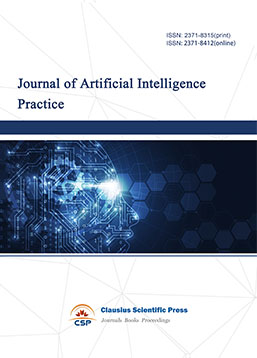Design and Realization of College Students' Mental Health Evaluation System Based on Fuzzy Judgment
DOI: 10.23977/acss.2022.060411 | Downloads: 36 | Views: 1928
Author(s)
Ping Zhang 1, Haigang Liang 2
Affiliation(s)
1 Hubei College of Chinese Medicine, Jingzhou, Hubei, 434020, China
2 Jingzhou University, Jingzhou, Hubei, 434020, China
Corresponding Author
Ping ZhangABSTRACT
With the enhancement of social competitiveness and efficient operation, college students are facing more and more pressures in all aspects, and incidents caused by psychological problems emerge in endlessly. Many mental health (M H) education forums and websites have appeared on the Internet. Although these forums and websites have made a certain contribution to the psychological knowledge and M H of college students, they cannot effectively manage and improve the psychology of college students. The purpose of this article is to design and implement a M H evaluation system for college students based on fuzzy judgment. This article first summarizes the basic theory of fuzzy evaluation, and then extends its core evaluation factors, combined with the current situation of contemporary college students' M H evaluation in my country, analyzes the existing problems and shortcomings, and designs college students’ psychology based on fuzzy evaluation. This paper systematically elaborates the analysis and design of the overall architecture, performance requirements and database of the college students' M H assessment system. This study uses questionnaire surveys, field surveys and other research methods. Experimental research shows that it is equivalent to the traditional college student M H evaluation system. The efficiency of the college student M H evaluation system based on fuzzy judgment is about 20% higher, which fully reflects the system designed this time.
KEYWORDS
Fuzzy Judgment, Mental Health, Evaluation System, Design and ImplementationCITE THIS PAPER
Ping Zhang, Haigang Liang, Design and Realization of College Students' Mental Health Evaluation System Based on Fuzzy Judgment. Advances in Computer, Signals and Systems (2022) Vol. 6: 86-93. DOI: http://dx.doi.org/10.23977/acss.2022.060411.
REFERENCES
[1] Jacoby S F, Rich J A, Webster J L, et al. 'Sharing things with people that I don't even know': help-seeking for psychological symptoms in injured Black men in Philadelphia[J]. Ethnicity and Health, 2018, 25(3):1-19.
[2] S?Rman K, Edens J F, Smith S T, et al. Boldness and Its Relation to Psychopathic Personality: Prototypicality Analyses Among Forensic M H, Criminal Justice, and Layperson Raters[J]. Law & Human Behavior, 2016, 40(3):337-349.
[3] Dolphin L, Hennessy E. Labelling effects and adolescent responses to peers with depression: an experimental investigation[J]. BMC Psychiatry, 2017, 17(1):228.
[4] Zhan Liyu, Lian Qin, Han Buxin. CiteSpace visual analysis of five Chinese translations of M H in Chinese papers from 1992 to 2017[J]. Chinese M H Journal, 2018, v.32(007):583-588 .
[5] Storey J E, Hart S D, Yan L L . Serial stalking of M H professionals: Case presentation, analysis, and formulation using the Guidelines for Stalking Assessment and Management (SAM)[J]. Journal of Threat Assessment and Management, 2017, 4(3):122-143.
[6] Zhang, Rui-Ping. Positive Affect and Self-Efficacy as Mediators Between Personality and Life Satisfaction in Chinese College Freshmen[J]. Journal of Happiness Studies, 2016, 17(5):2007-2021.
[7] Jiang S, Wang B. M H of Chinese postgraduates: Meta - Analysis of studies using SCL-90 scale[J]. International Journal of Simulation: Systems, Science & Technology, 2016, 17(30):281-289.
[8] Scherr K C, Normile C J, Putney H. Perpetually stigmatized: False confessions prompt underlying mechanisms that motivate negative perceptions of exonerees.[J]. Psychology, Public Policy, and Law, 2018, 24(3):341-352.
[9] Sherman J W, Groom C J, Ehrenberg K, et al. Bearing False Witness Under Pressure: Implicit and Explicit Components of Stereotype-Driven Memory Distortions[J]. Social Cognition, 2016, 21(3):213-246.
[10] Subramanian N, Ramanathan R, Kumar V M , et al. Legal Terms Used in Reception Order and their Relevance to Judicial Process[J]. Indian Journal of Psychological Medicine, 2016, 38(5):431-437.
[11] R Pozón, Sergio. Shared decision making in M H: Myths, barriers, and benefits[J]. Revista De Psiquiatria Y Salud Mental, 2016, 9(3):175-176.
[12] Robertson M N, Deshong H L, Steen J S , et al. M H first aid training for Extension agents in rural communities[J]. Suicide and Life-Threatening Behavior, 2021, 51(2):301-307.
| Downloads: | 43155 |
|---|---|
| Visits: | 943193 |
Sponsors, Associates, and Links
-
Power Systems Computation

-
Internet of Things (IoT) and Engineering Applications

-
Computing, Performance and Communication Systems

-
Journal of Artificial Intelligence Practice

-
Journal of Network Computing and Applications

-
Journal of Web Systems and Applications

-
Journal of Electrotechnology, Electrical Engineering and Management

-
Journal of Wireless Sensors and Sensor Networks

-
Journal of Image Processing Theory and Applications

-
Mobile Computing and Networking

-
Vehicle Power and Propulsion

-
Frontiers in Computer Vision and Pattern Recognition

-
Knowledge Discovery and Data Mining Letters

-
Big Data Analysis and Cloud Computing

-
Electrical Insulation and Dielectrics

-
Crypto and Information Security

-
Journal of Neural Information Processing

-
Collaborative and Social Computing

-
International Journal of Network and Communication Technology

-
File and Storage Technologies

-
Frontiers in Genetic and Evolutionary Computation

-
Optical Network Design and Modeling

-
Journal of Virtual Reality and Artificial Intelligence

-
Natural Language Processing and Speech Recognition

-
Journal of High-Voltage

-
Programming Languages and Operating Systems

-
Visual Communications and Image Processing

-
Journal of Systems Analysis and Integration

-
Knowledge Representation and Automated Reasoning

-
Review of Information Display Techniques

-
Data and Knowledge Engineering

-
Journal of Database Systems

-
Journal of Cluster and Grid Computing

-
Cloud and Service-Oriented Computing

-
Journal of Networking, Architecture and Storage

-
Journal of Software Engineering and Metrics

-
Visualization Techniques

-
Journal of Parallel and Distributed Processing

-
Journal of Modeling, Analysis and Simulation

-
Journal of Privacy, Trust and Security

-
Journal of Cognitive Informatics and Cognitive Computing

-
Lecture Notes on Wireless Networks and Communications

-
International Journal of Computer and Communications Security

-
Journal of Multimedia Techniques

-
Automation and Machine Learning

-
Computational Linguistics Letters

-
Journal of Computer Architecture and Design

-
Journal of Ubiquitous and Future Networks


 Download as PDF
Download as PDF